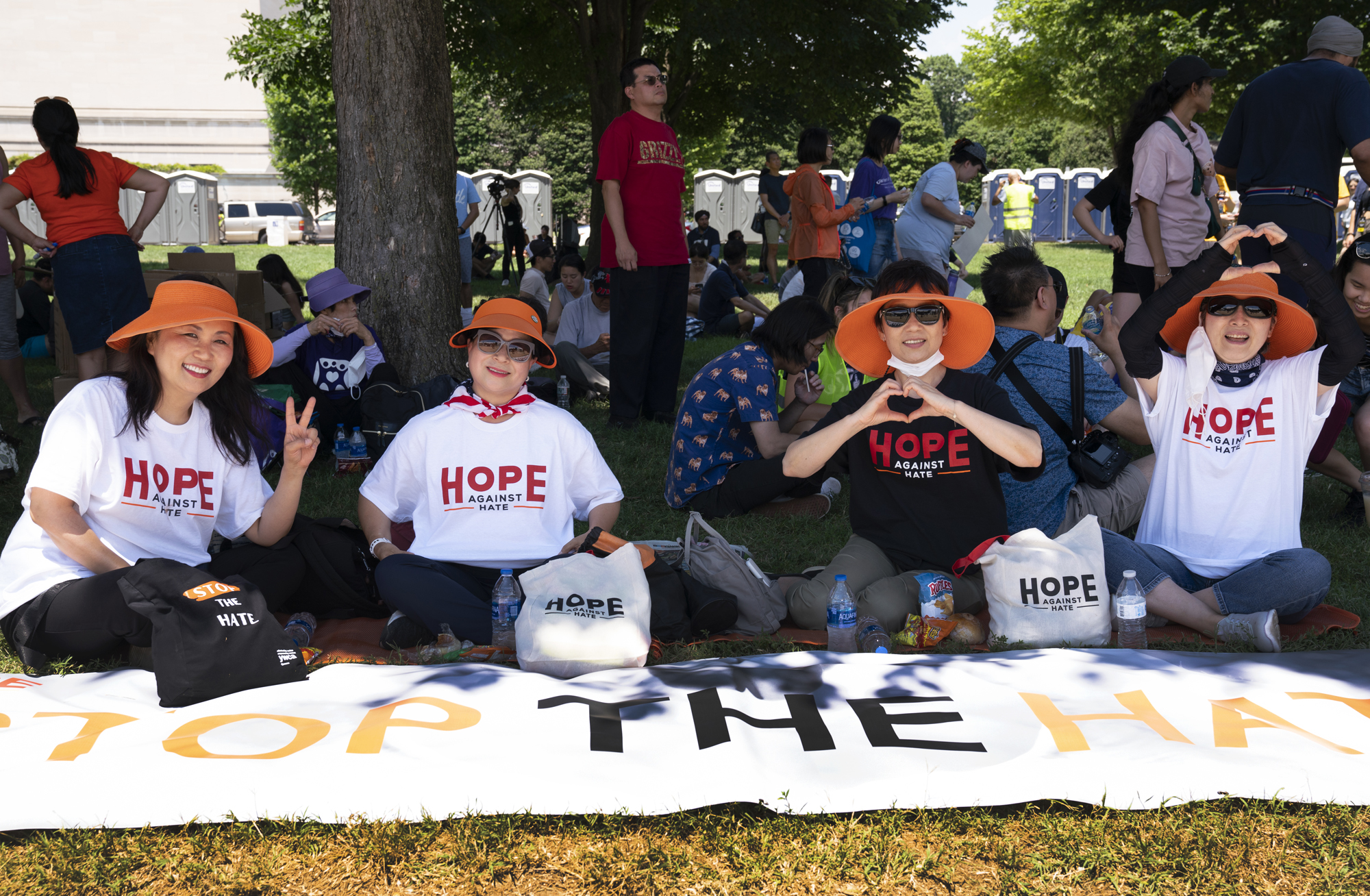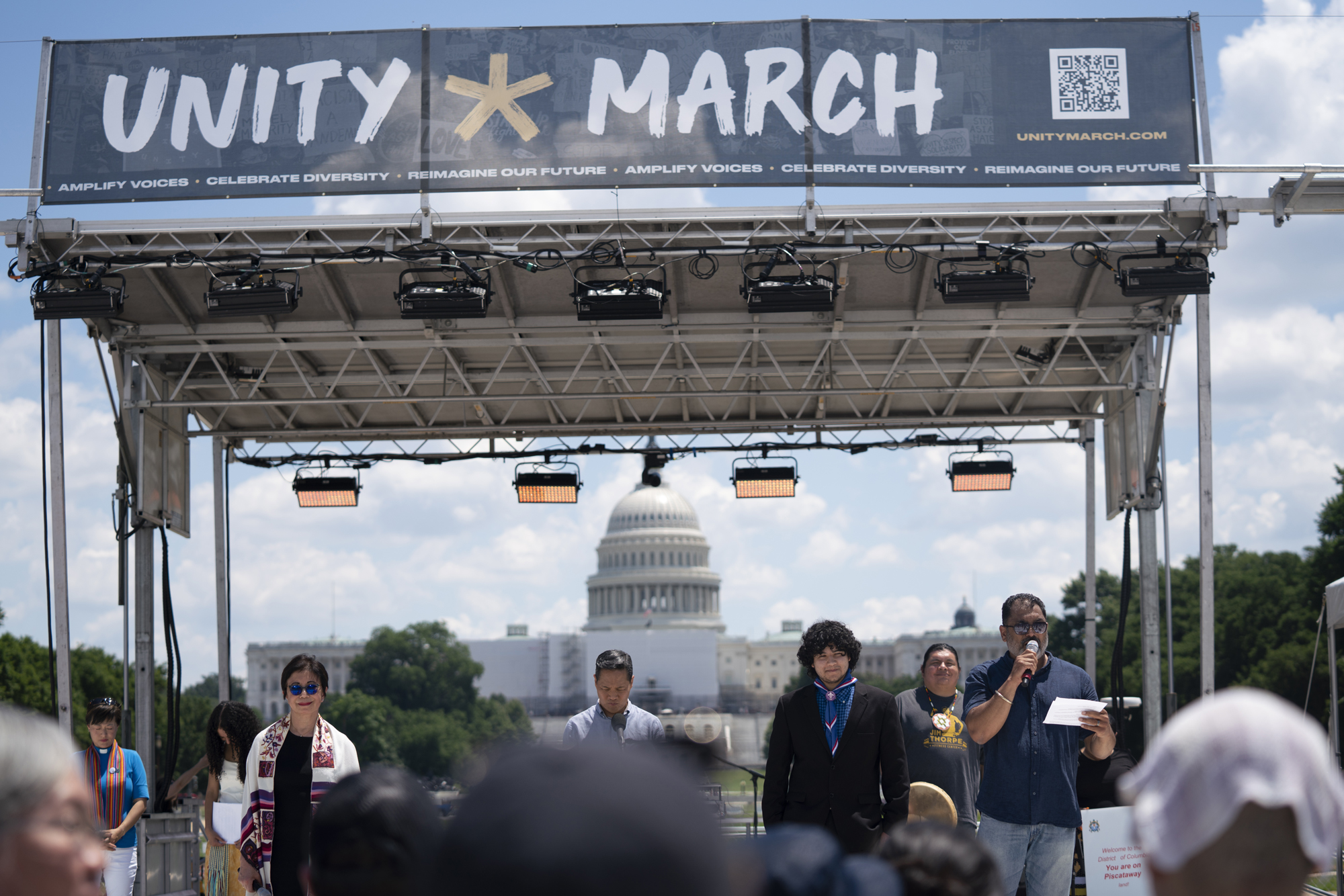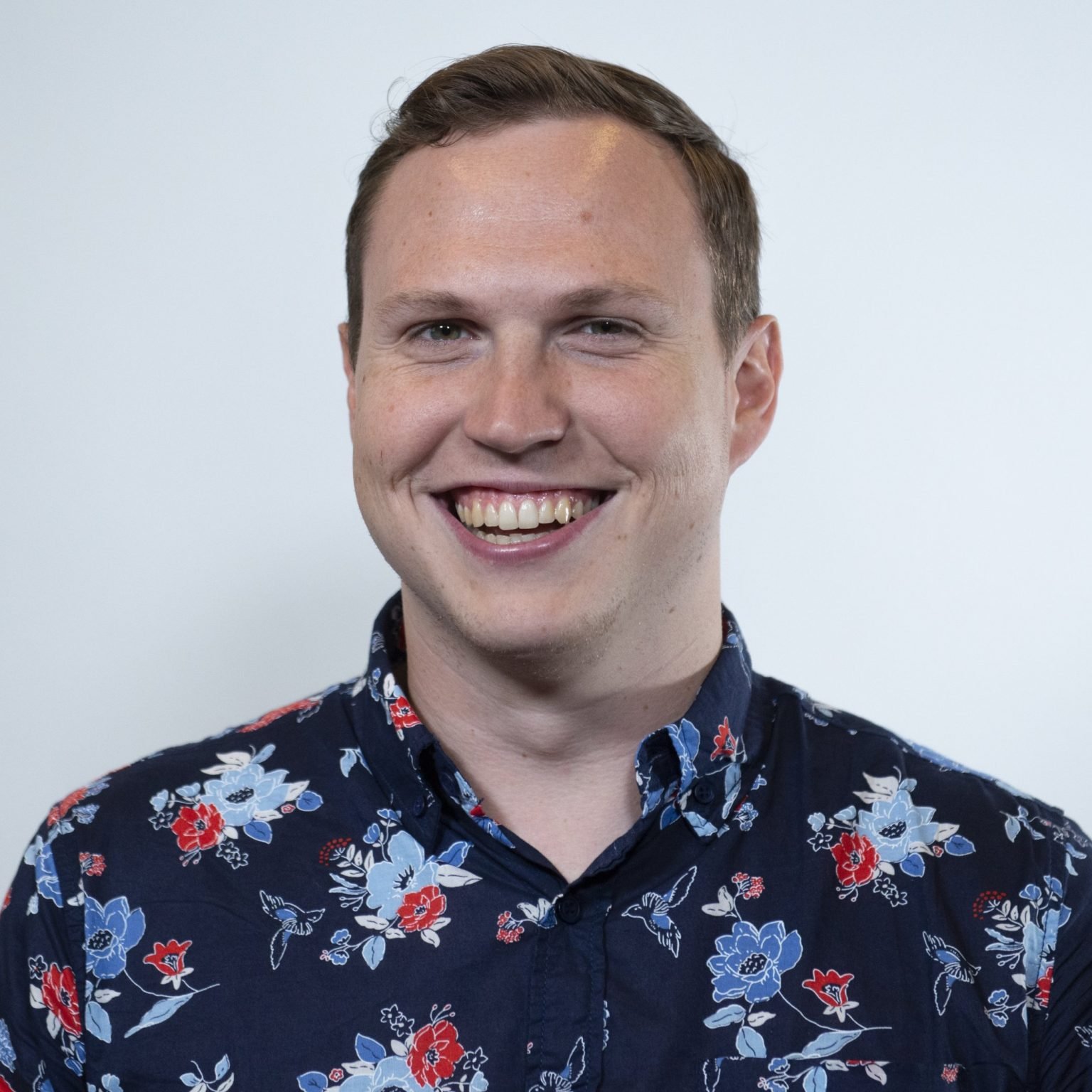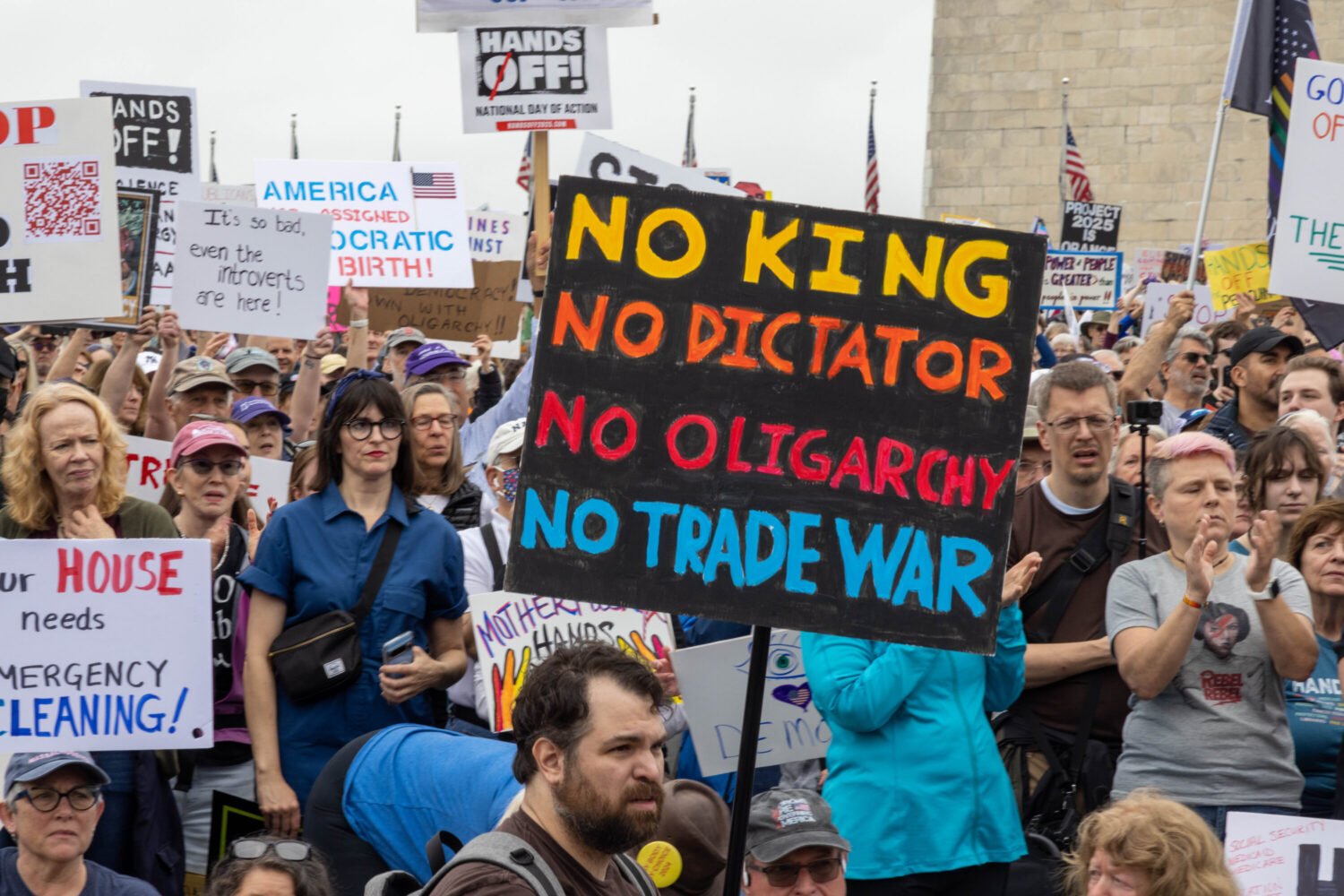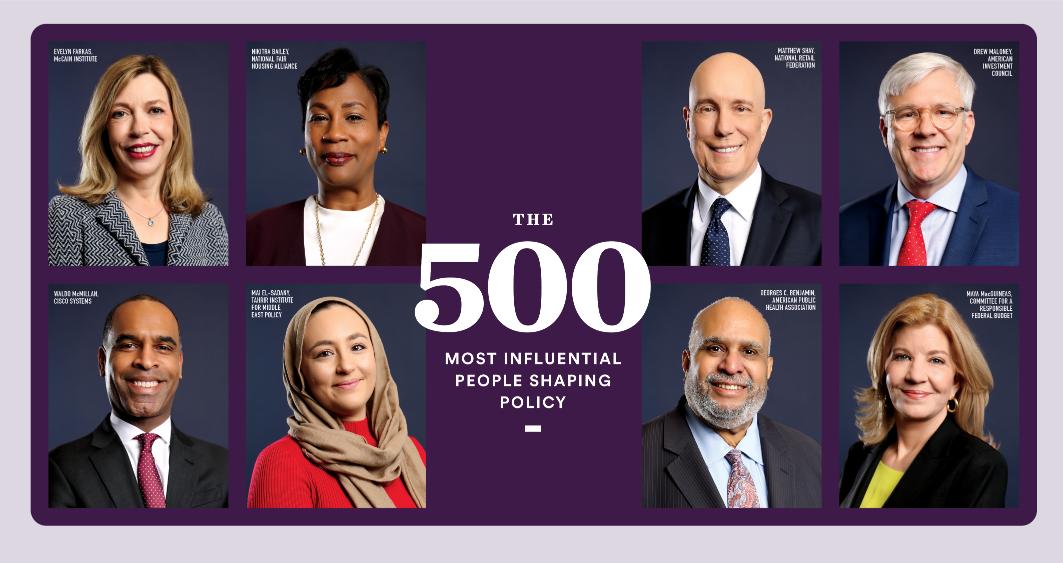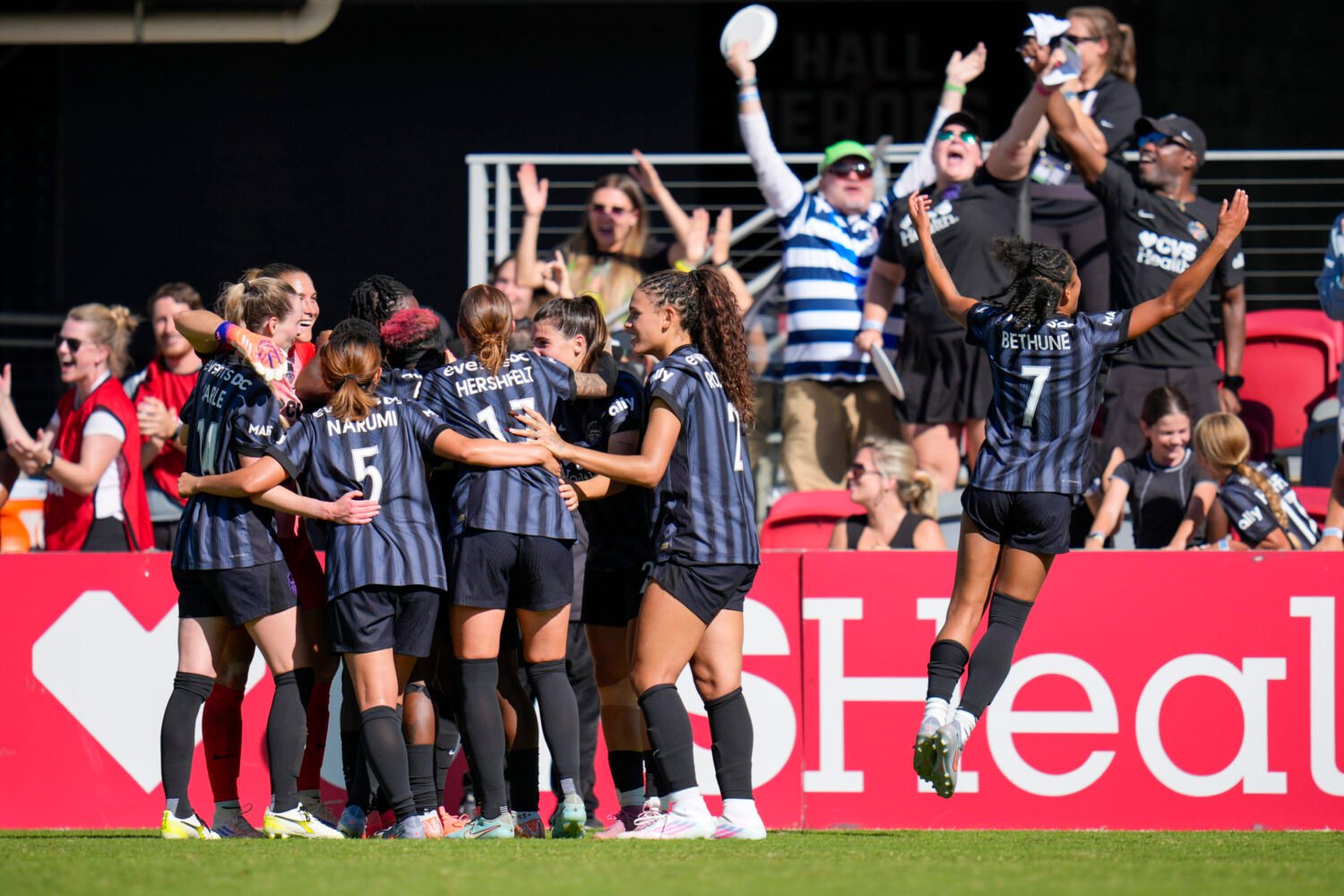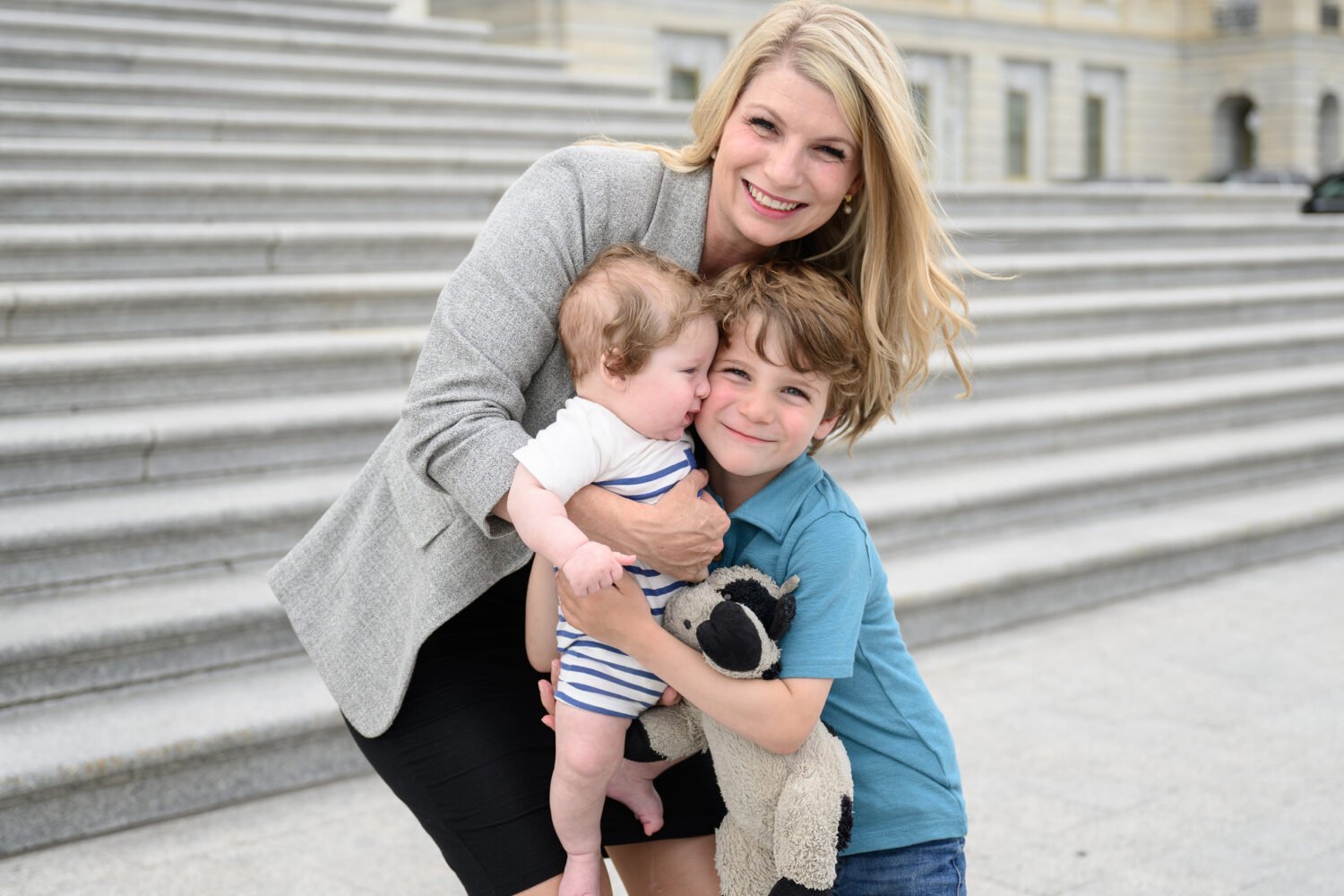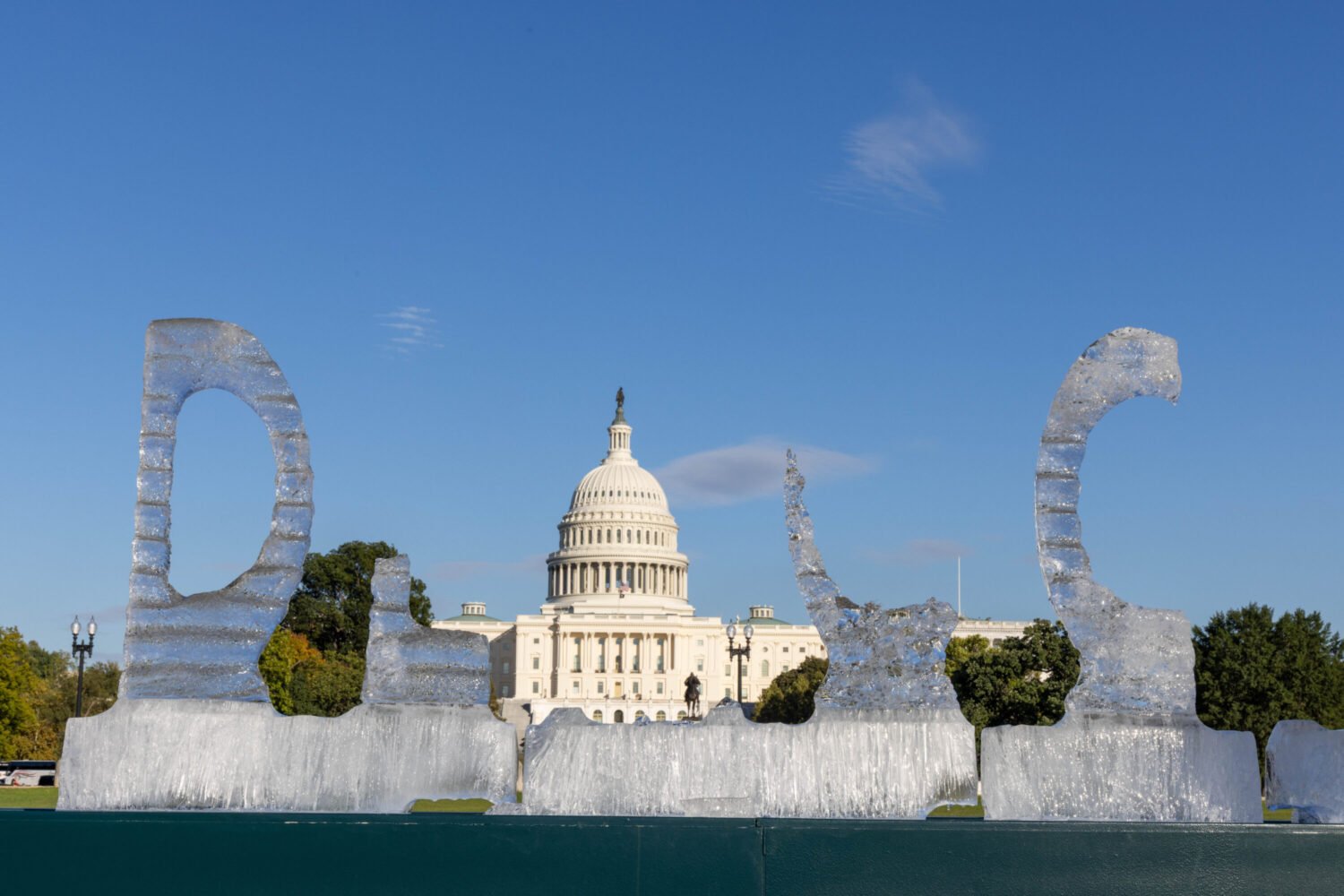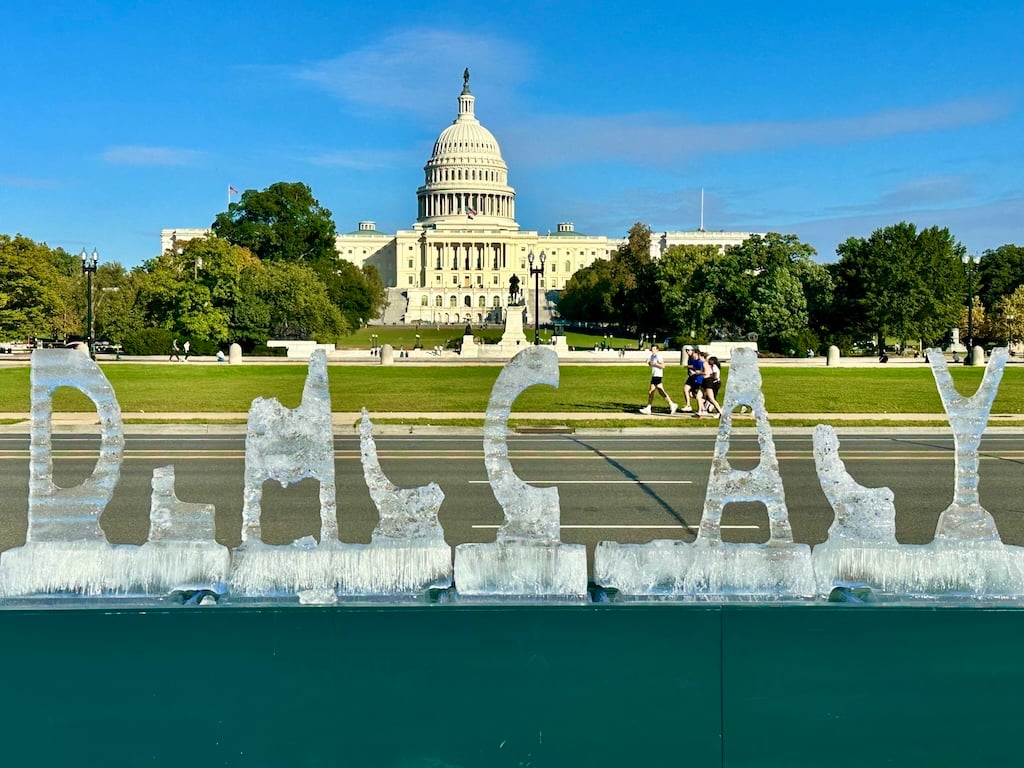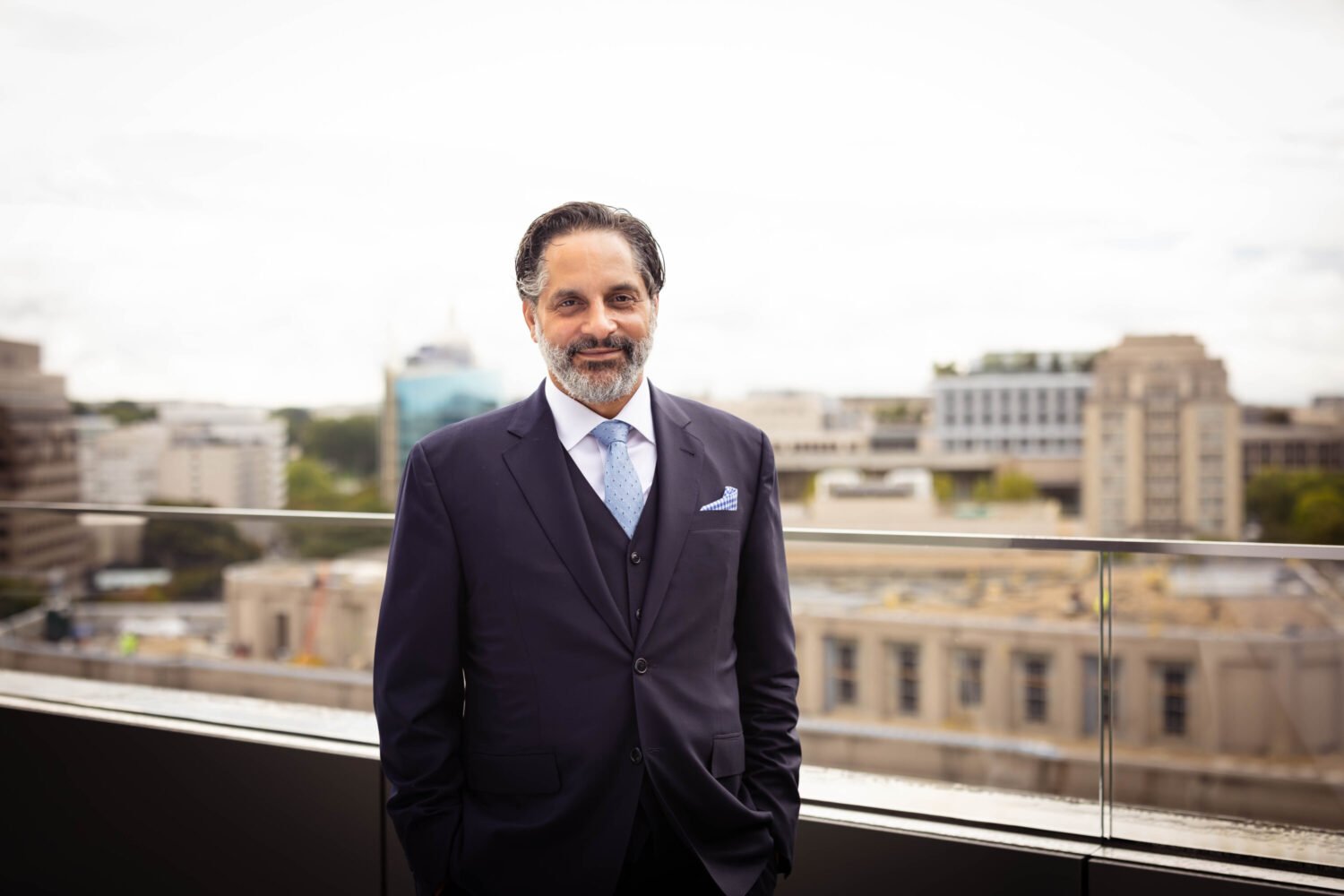A diverse crowd gathered on a sweltering Saturday for the first-ever Asian American-led Unity March at the National Mall. Over 60 Asian American and Pacific Islander advocacy organizations led the event in response to a rise of anti-Asian racism during the pandemic and the murders of six Asian women at Atlanta massage parlors in March 2021.
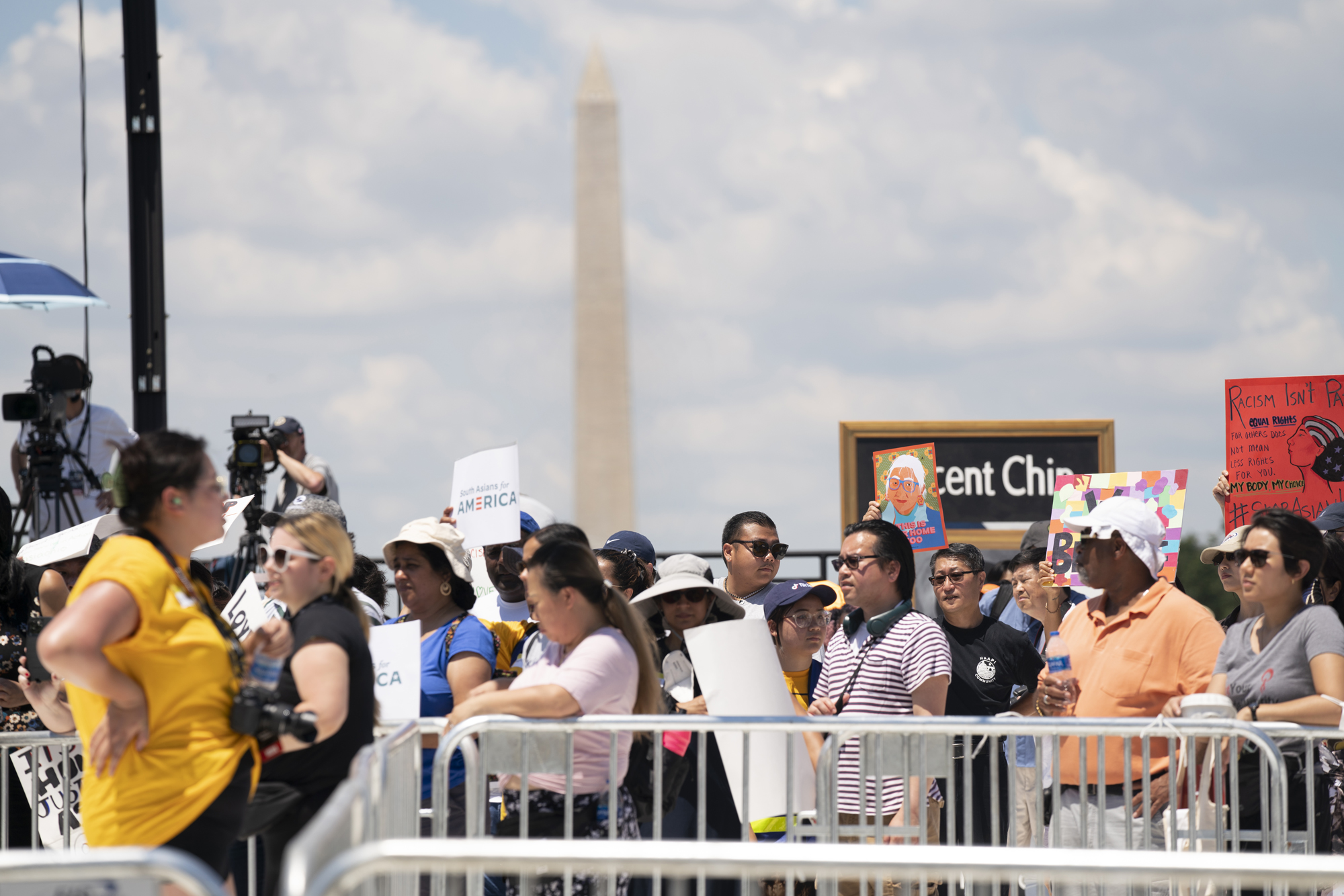
Speakers and attendees tackled every issue under the sun—ethnic studies in K-12 schools, abortion rights, immigration, police violence, and more. The March also highlighted the historical existence of anti-Asian violence: Last week marked 40 years since Vincent Chin was murdered by two white men in Detroit, which sparked the modern Asian American civil rights movement.
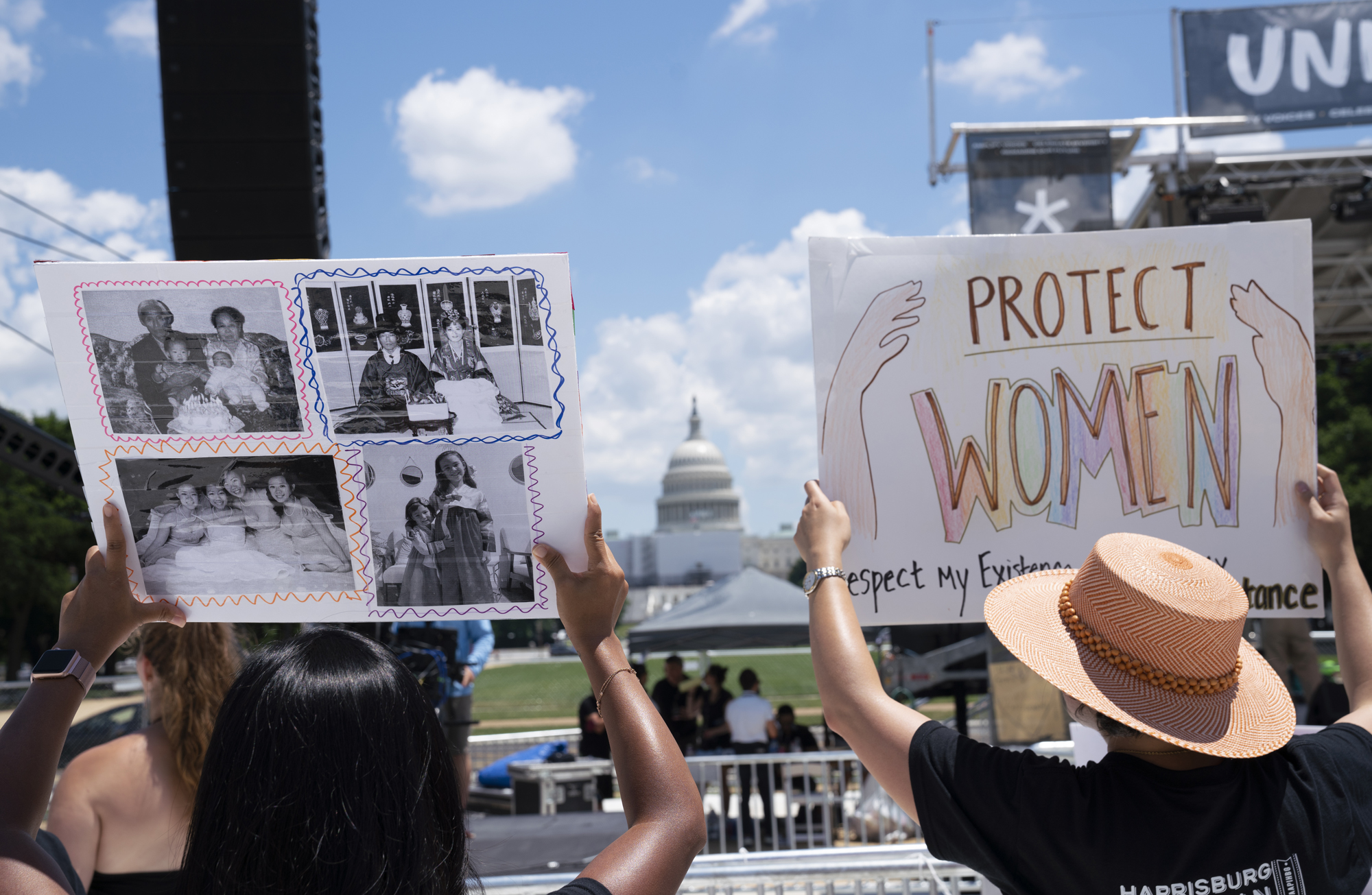
Over 50 individuals spoke at the event, including U.S. Youth Poet Laureate Alexandra Huynh, civil rights activist Rev. Al Sharpton, and Gareth and Fe Hall, the parents of Christian Hall, a Chinese-American man who was killed by Pennsylvania state police in 2020.
Washingtonian spoke with organizers and participants about what this moment meant to them:
Anthony Lee
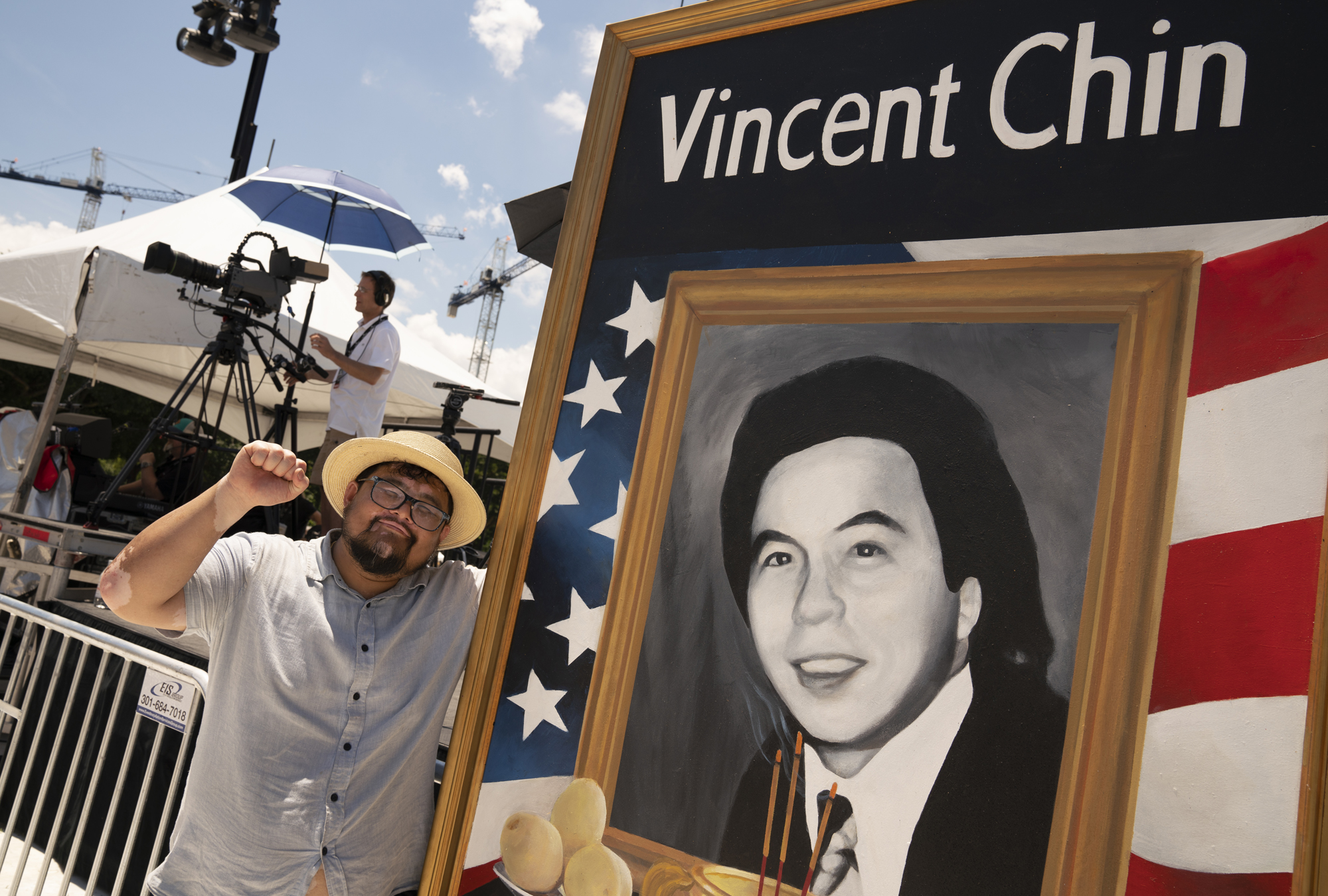
The paint was barely dry on Anthony Lee’s week-old mural of Vincent Chin when he and his girlfriend loaded it into a truck and made their way from Detroit to DC. Lee, a muralist and illustrator, was commissioned by the American Citizens for Justice to create the painting ahead of the 40th anniversary and remembrance of Chin’s death in Detroit.
“We just came out here because we felt that, in the discussion about equality and injustice, he is like one of the most important people to be put in that conversation,” Lee says. “Because the Asian-American civil rights movement was started as a result of fighting for his injustice.”
Priya Purandare
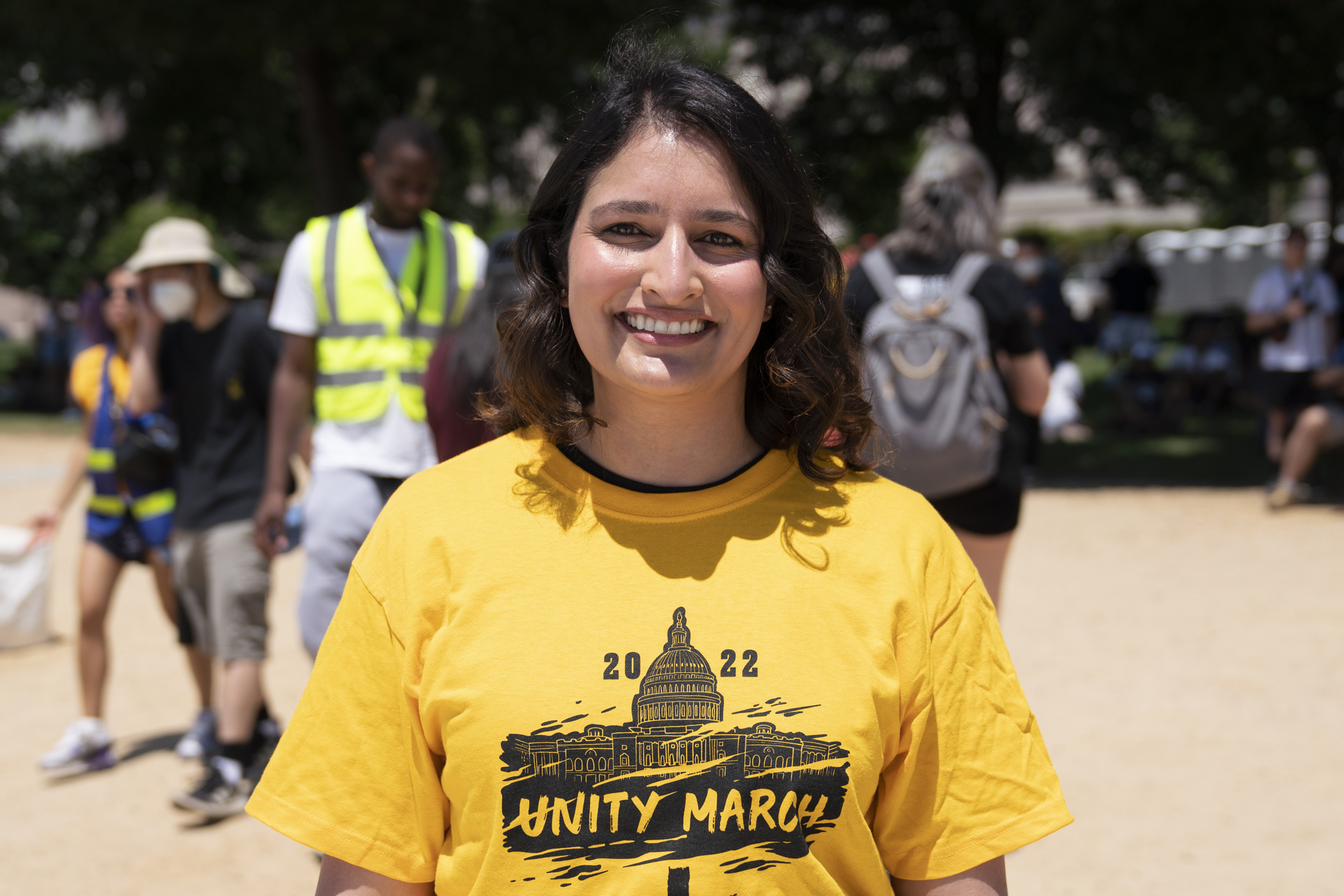
Priya Purandare, Executive Director of the National Asian Pacific American Bar Association, says she’s seen a boom in civic engagement over her 15 years in DC: “The difference is that I’m seeing much more young people becoming politically active, making sure they’re having difficult conversations with their own families.”
Ellen Min
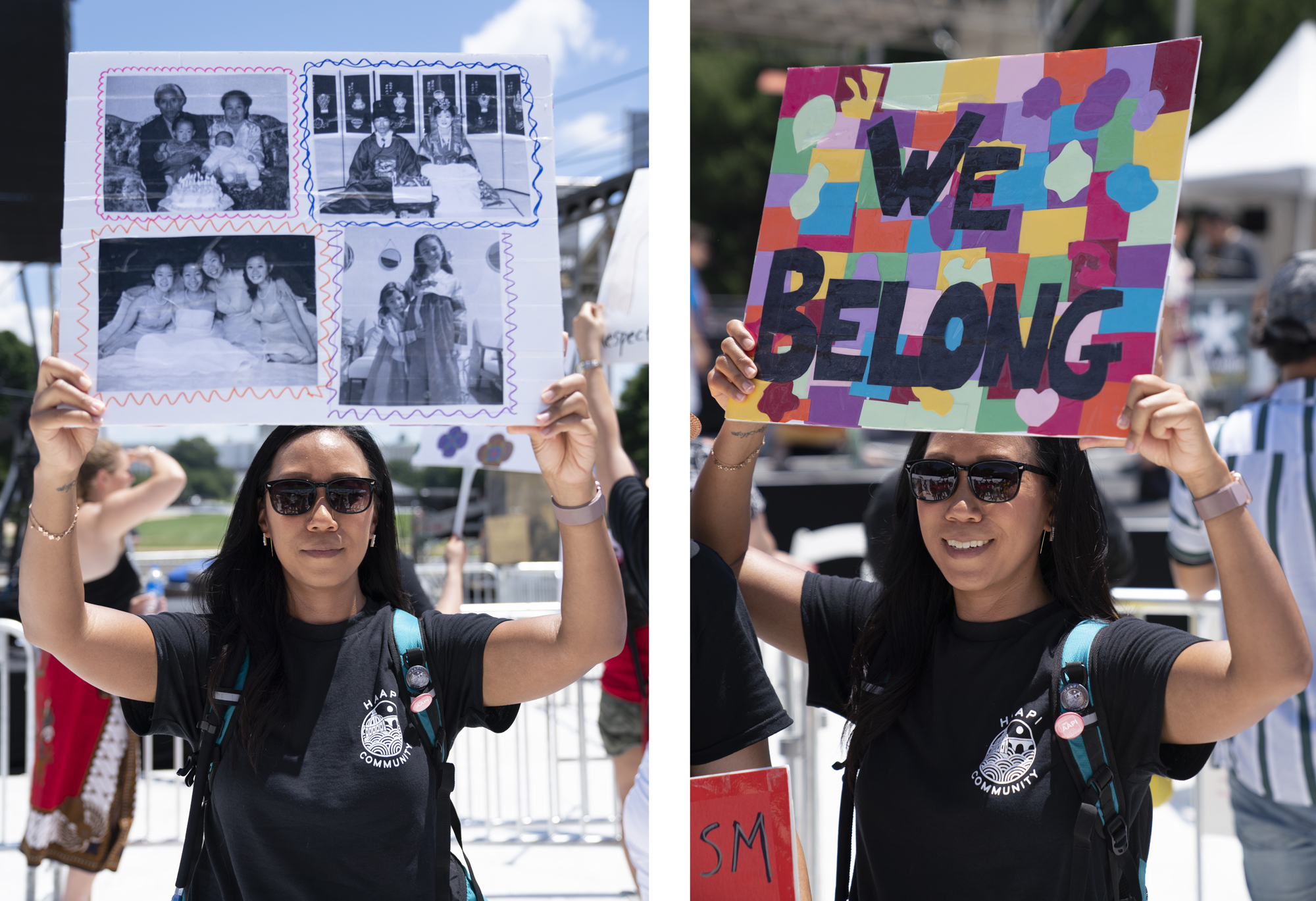
Amid experiences of violence and discrimination, 39-year-old Ellen Min’s grandparents and parents did what they had to do to survive in America; She and her older sister lived in a senior center with her grandparents as children, because her father couldn’t afford childcare.
“I want to let everyone know that we do belong. We are a part of the fabric of this country and I’m marching, and I look at this picture and this is the reason why I’m here. For my family, for my grandparents, down to my children,” Min says.
Teach Roberts
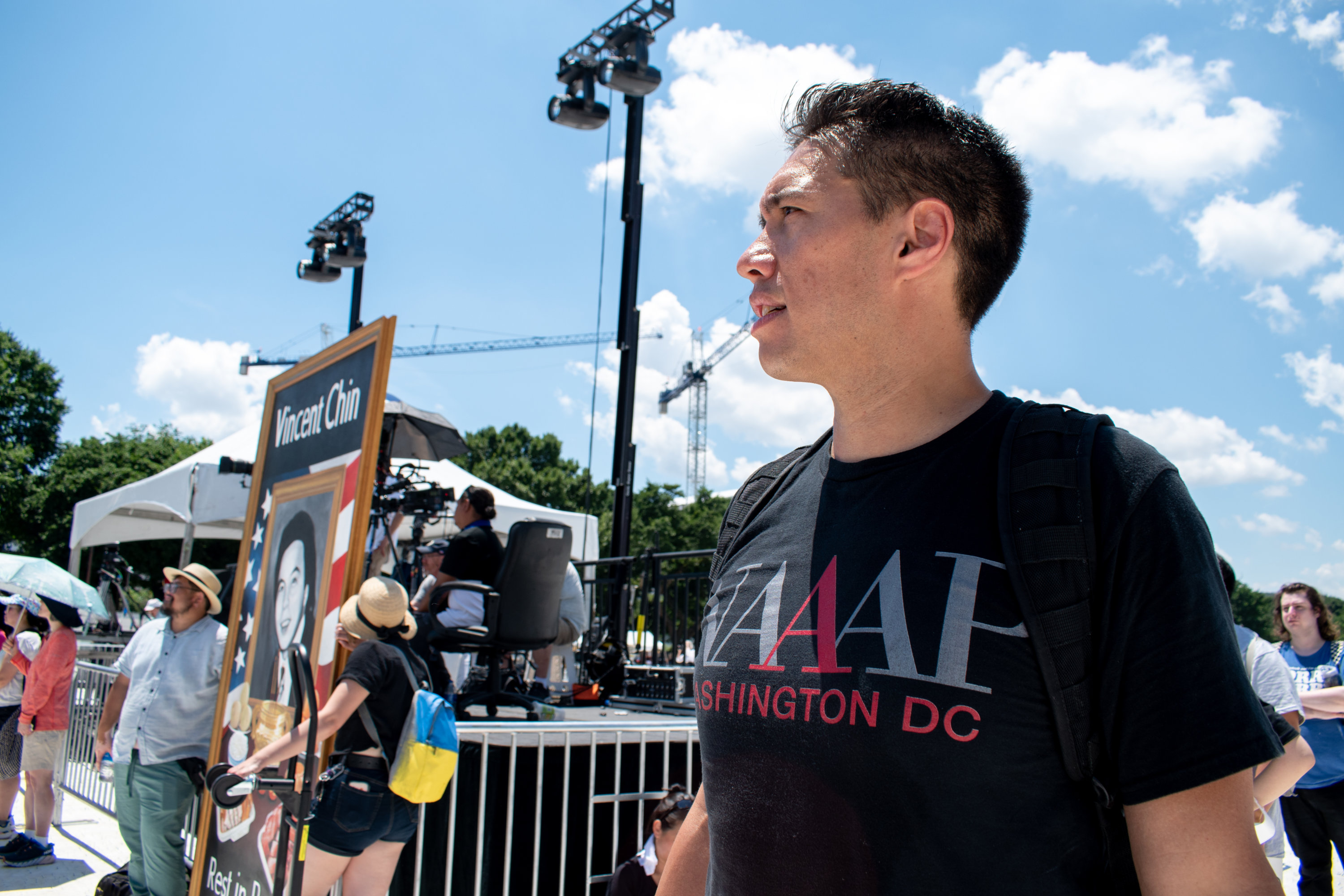
Teach Roberts, who’s lived in DC for over 20 years, identifies as “hapa:” half white and half Asian. While studying in Hong Kong, Roberts realized he was missing something: “For the first 19 years of life, I kind of did not identify as Asian at all. In Hong Kong, I started learning more about my Chinese side and my heritage. Until then, I didn’t feel like a complete person.” Now, Roberts organizes with the National Association of Asian American Professionals.
Kiran Gill
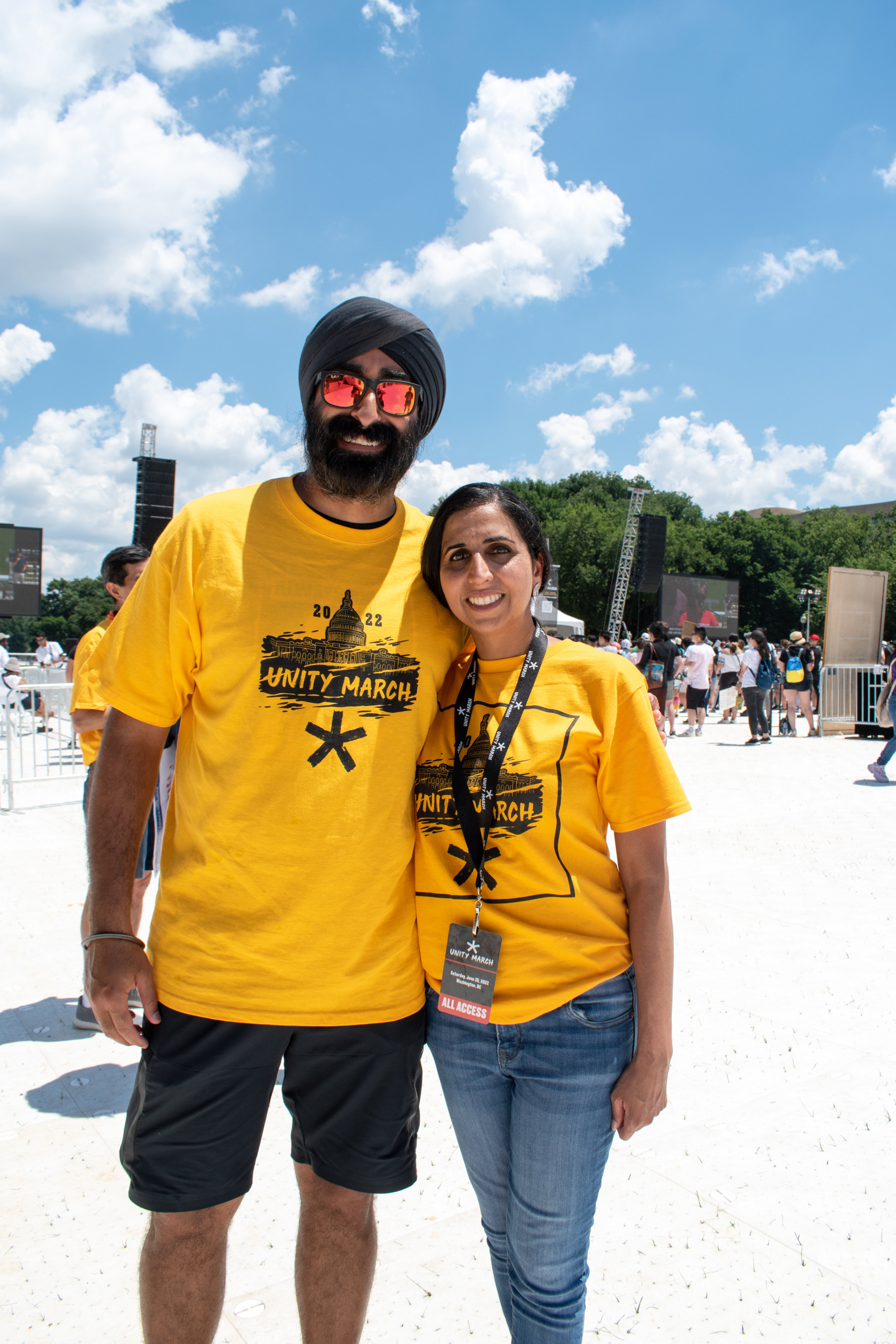
When 9/11 happened, Kiran Gill was living in New York. Gill, now the Executive Director of the Sikh American Legal Defense and Education Fund, watched as people targeted her community and labeled them as terrorists. “To see that again, happening to other communities, you know, in this day and age 20 years later, it saddens me,” Gill says.
Gill says one of the first calls her community received was from the Japanese American Citizens League, who recognized the racist rhetoric against the Sikh community as the kind of fear mongering that resulted in Japanese internment during World War II. “To see the way our communities have supported each other and really threaded this narrative and understand what’s at stake to me — that is something that gives me hope,” Gill says.
Mian Osumi
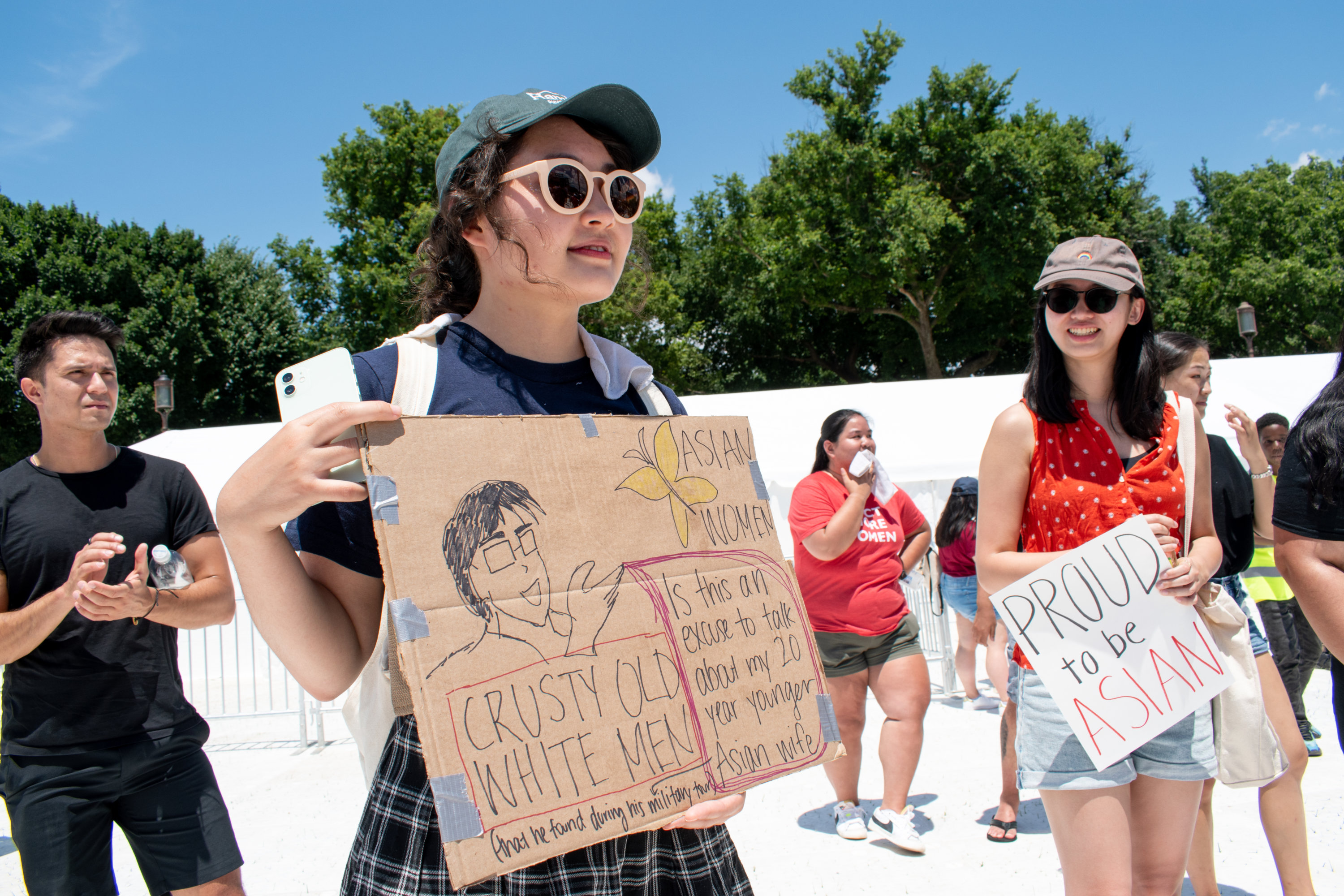
Mian Osumi, a 22-year-old from Bethesda, came to deliver this message: Stop fetishizing Asian women. One side of her sign reads “your bad day shouldn’t be my last day,” referencing police rhetoric of the shooter’s “bad day” during the Atlanta shooting. The other side of her sign was a meme calling out white military men with Asian fetishes who prey on young Asian women.
“I think humor is a great way to bring attention to a lot of our issues and in a more accessible way. I wanted other Asian women to be like, ‘I’ve seen that. I’ve experienced that too,’” Osumi says. “We’re in this moment of solidarity together.”
Derek Yuan
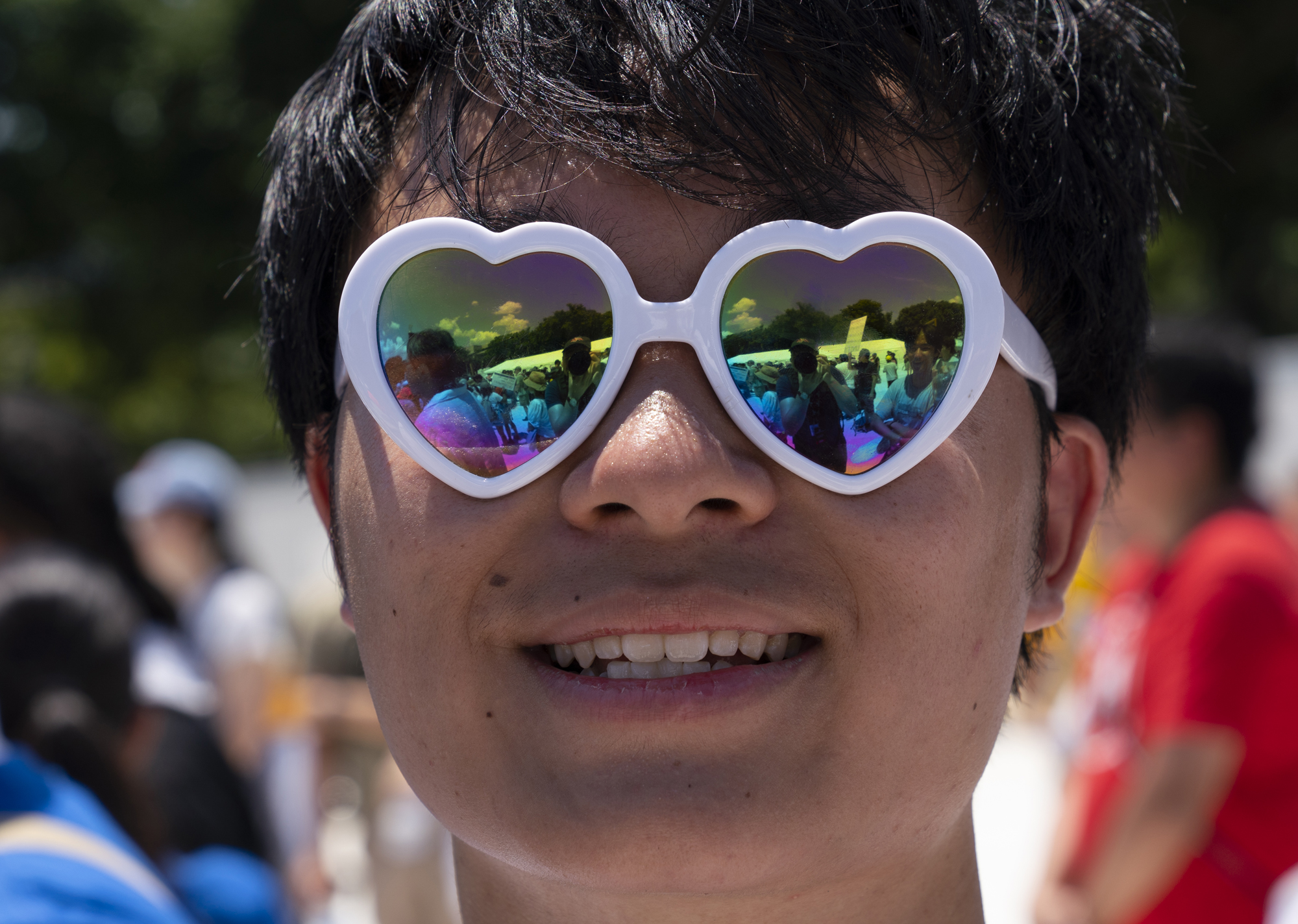
Derek Yuan flew in from Sacramento Friday night to be at the march. “It was a very important trip to make. I had the privilege of working with [APIAVote executive director] Christine Chen last school semester. I got to meet Asian Pacific Islander leaders from all sorts of industries, all sorts of sectors from journalism, or elected officials, people in the API data field,” Yuan says. “It was really educational. And so it just made sense to continue that sort of learning for me, but also really show out and come support efforts for the Unity March.”
Dalip and Hersh Singh
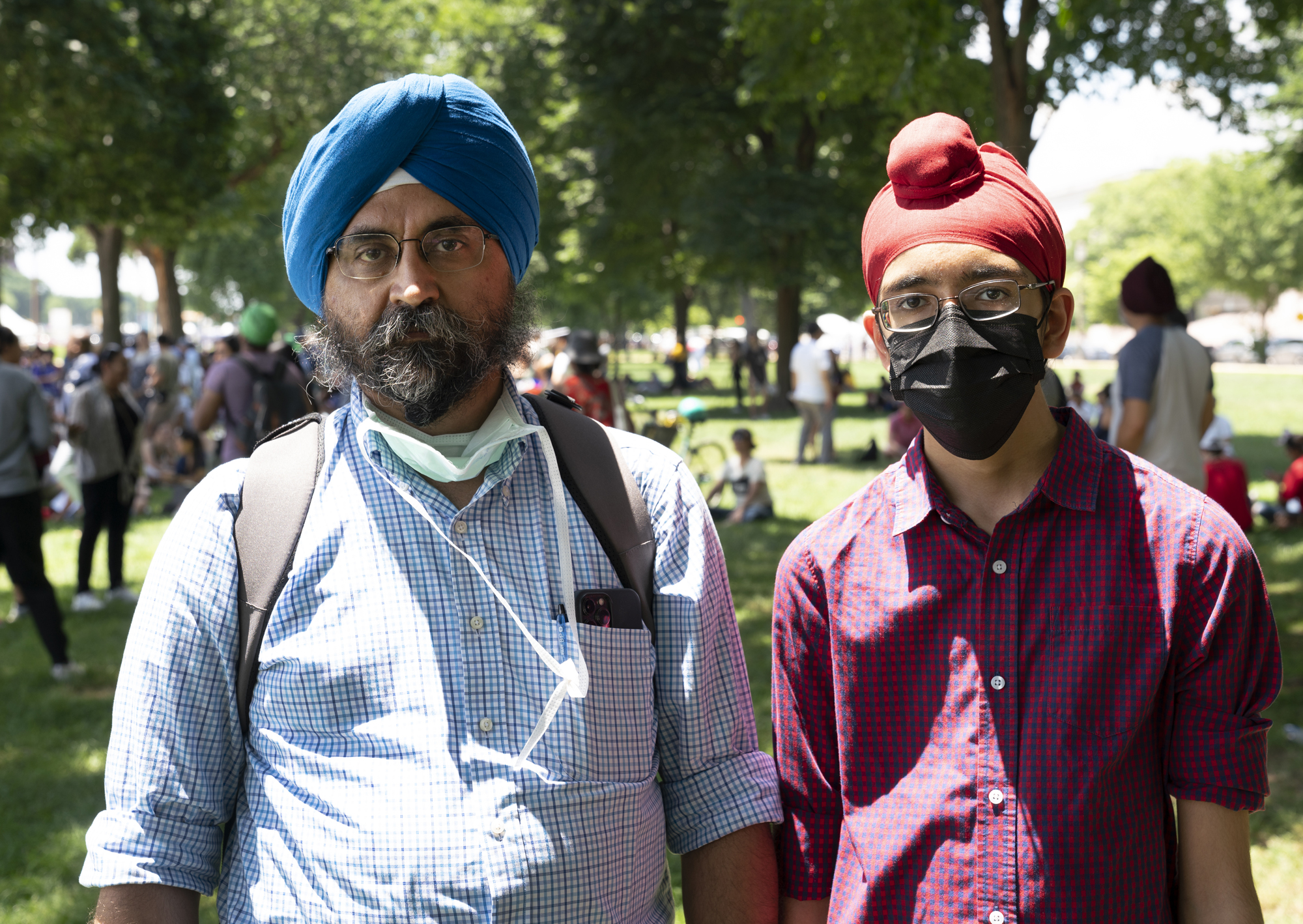
Dalip Singh and his son Hersh were visiting from Milwaukee, where, they note, a shooting of Sikh temple happened in 2012. “I think it’s important to come together so that these things stop happening to each one of us,” says Dalip, a physician. “You know, it’s better to be part of something than be isolated and get slaughtered.”
Tiffany Chang Lawson
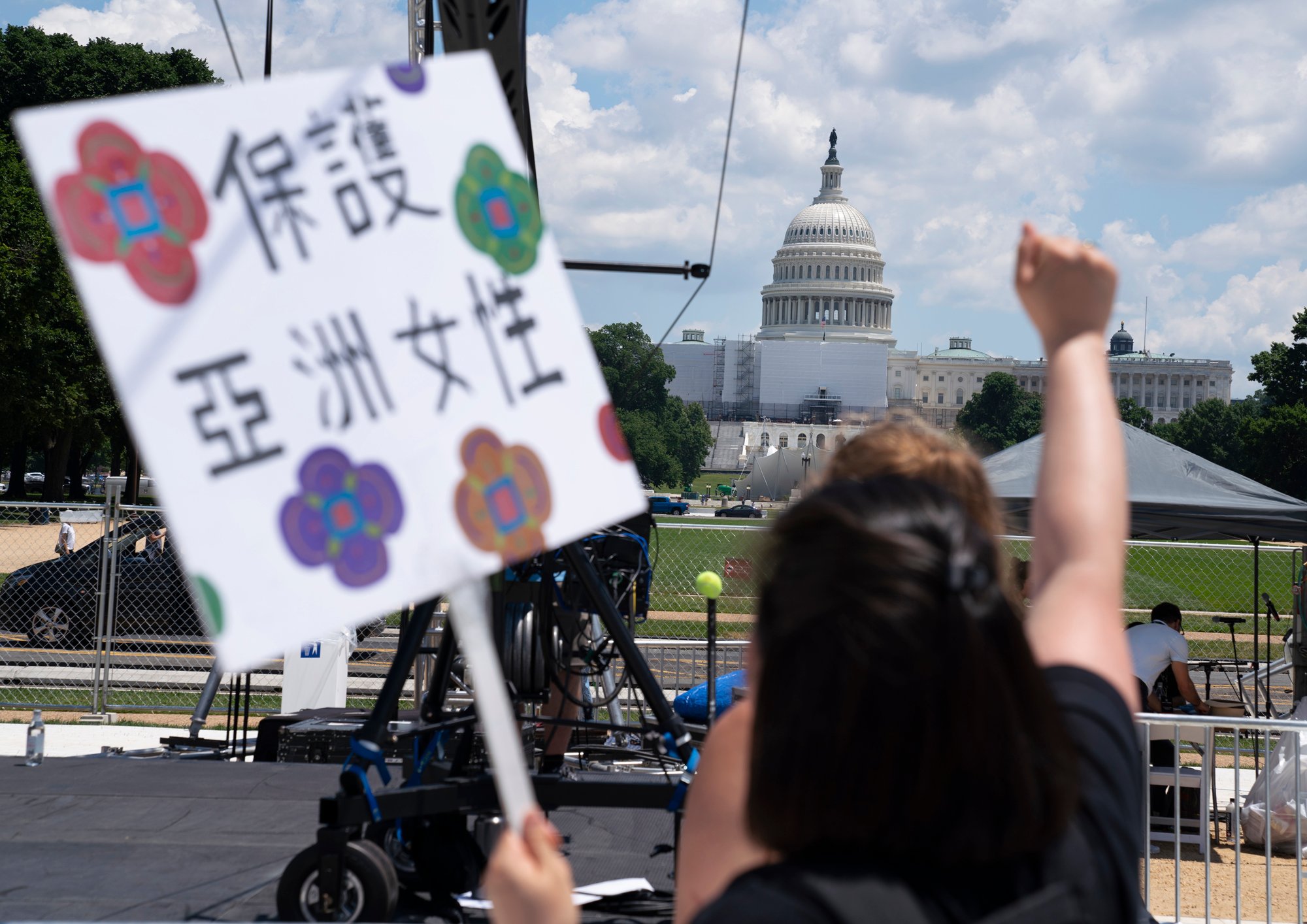
Tiffany Chang Lawson, a 33-year-old Taiwanese-American from Harrisburg, Pennsylvania, carried a sign reading “Protect Asian Women” in traditional Chinese on one side, and the same in English on the other. “We need to take care of our sisters,” Lawson says.
Mia Jackson, Anissa Jacks, Lena Levette, Lyric Amodia
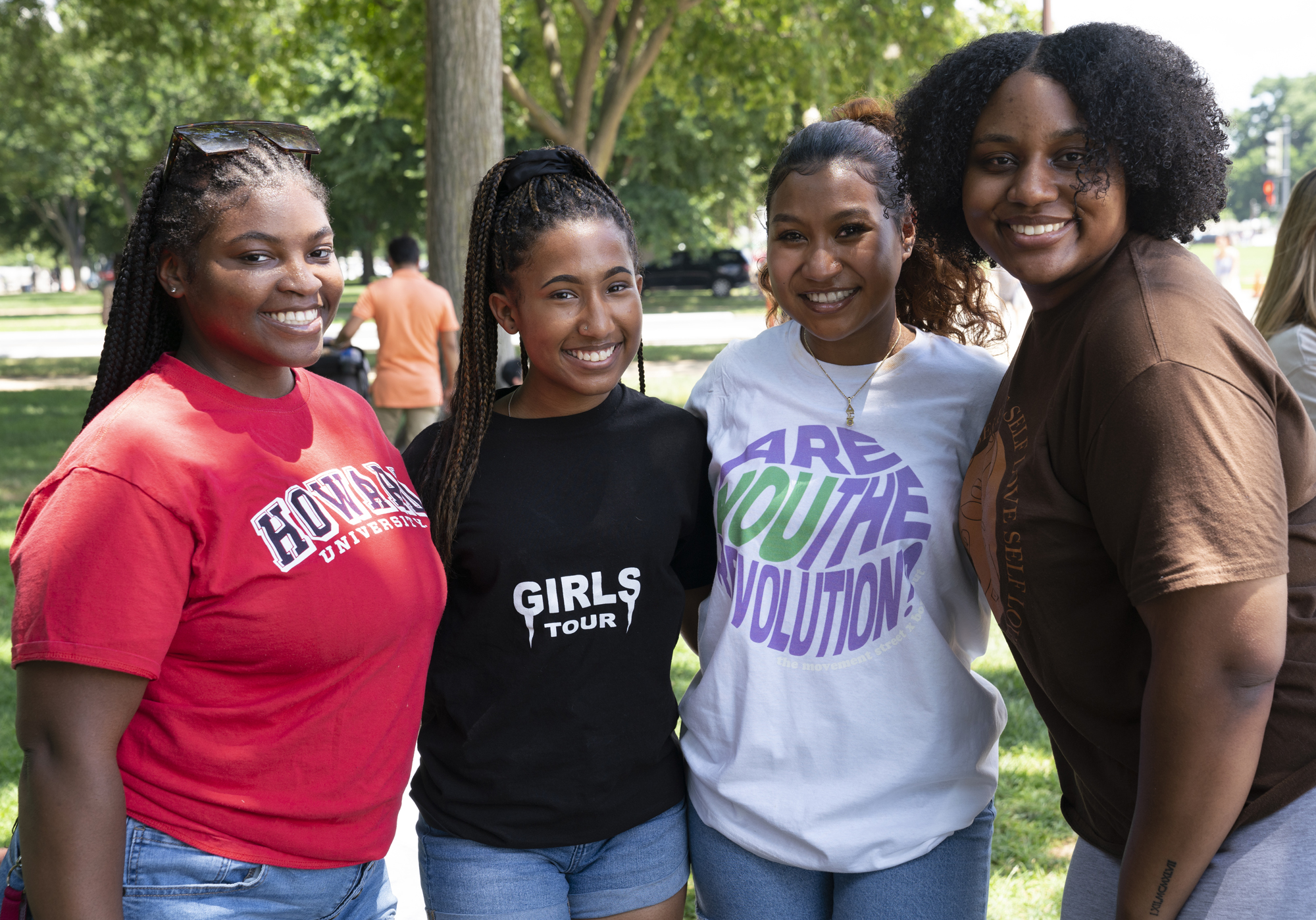
Lyric Amodia, seen here with fellow members of Howard University’s NAACP Council, spoke to the crowd about standing in solidarity in the face of adversity. “Considering this week that we’ve had, we’re just here to really fellowship and have some unity, have a great time, and just talk about what’s important to make a difference,” Amodia says.
Hannah H Yu and Eun-Kyung Kim
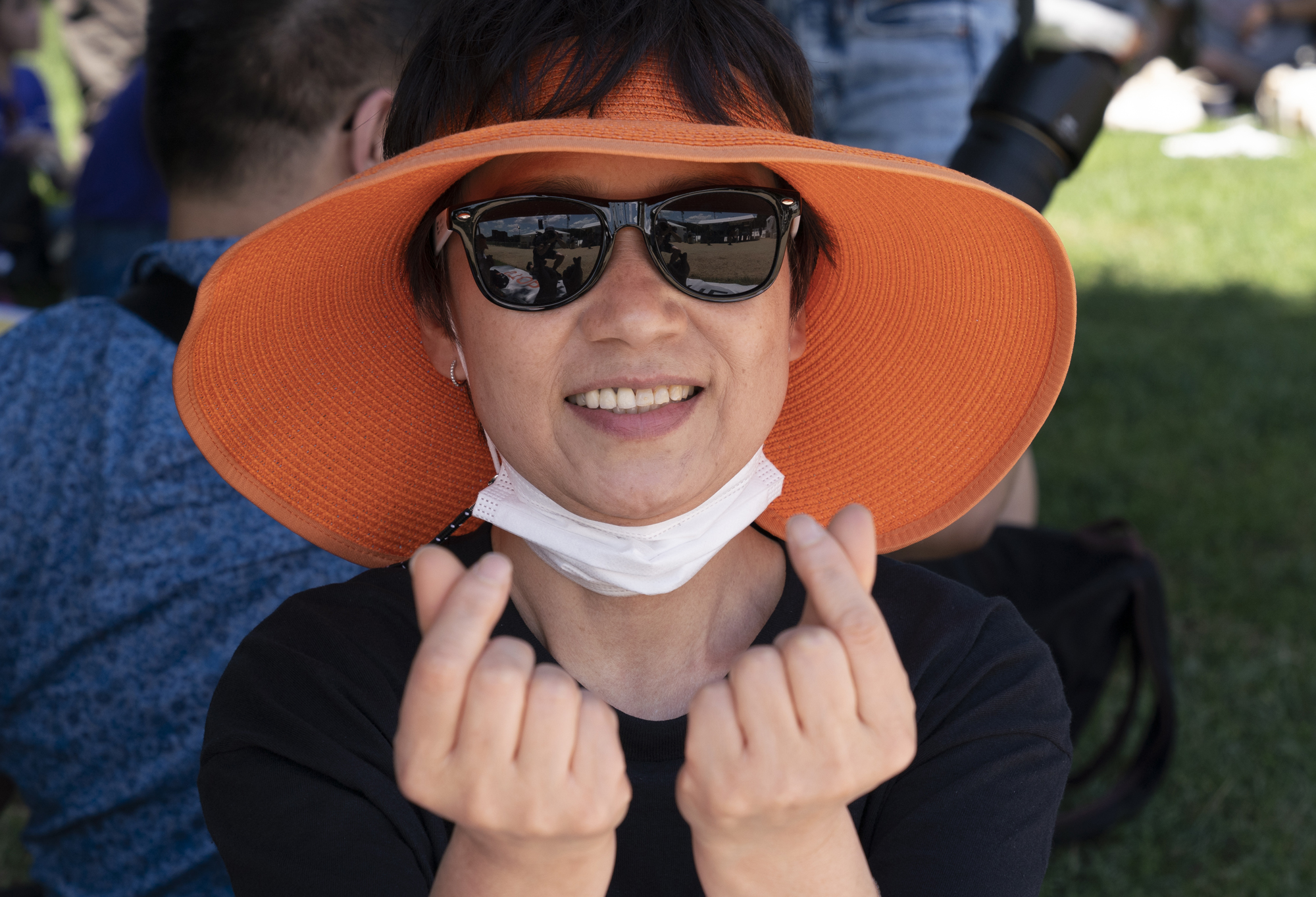
Hannah H Yu traveled down from New York City with the group YWCA Queens (Young Women’s Christian Association of Queens), a group aimed at eliminating racism and empowering women. After posing for this photo, the group’s executive director Eun-Kyung Kim, pictured below, provided some background on the gesture: “We in Korean culture, we say all the time, ‘Oh, we love you. I love you,’ but sometimes these are very difficult to say I love you all the time. So they tried to make the heart shape. One of the celebrities in Korea, he was like, ‘this way it’s like a very small heart.’”
